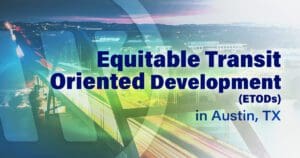
2020 ENR Top 500 Design Firms List: WGI Moves Up to #187
WGI moves up 37 spots on Engineering News-Record (ENR)’s 2020 Top 500 Design Firms List.
Learn from award-winning professionals — explore our whitepapers, blogs, and the latest industry updates.
Join our dynamic organization of engineers, land surveyors, landscape architects, environmental scientists, and architects!
Talk to a market leader today! We’ll answer any questions you have about our professional services.

This is the second and last entry in evaluating how special districts are set-up, financed, and operated to support the improvement of designated areas. We looked at the Public Improvement District (PID) last time, which have also been referred to as a Business Improvement District (BID) or Merchant Improvement District (MID). BIDs and MIDs mainly provide enhancements to an existing built environment, but thanks to some very esteemed land use professionals in Austin, PIDs are becoming a tool to support and finance infrastructure in new projects.
The precursor to the PID – at least in Texas – is the Municipal Utility District (MUD). While PIDs are an increasingly popular tool in areas like Austin, MUDs are preferred in other areas of the state, primarily Harris County. A MUD is a special-purpose district or other governmental jurisdiction that provides infrastructure and public utilities like electricity, natural gas, sewage treatment, waste collection/management, wholesale telecommunications, and water to the residents of that district. MUDs are formed by a vote of the area, and represented by board of directors who are voted on by the people who assemble the MUD.
MUDs operate as political subdivisions of the state and are approved by the Texas Commission on Environmental Quality (TCEQ) to provide water, sewage, drainage, and other services within the boundaries of the district. They are created by property owners within the district. A majority of those property owners have to petition the TCEQ to create the district, and ultimately the commission makes a decision on whether to create the district after a public hearing.
MUDs operate under a publicly elected Board of Directors. That Board manages the MUD but continues to operate under the purview of the TCEQ. The Board establishes policies in the interest of its residents and utility customers. In addition to their common functions of water and wastewater service, MUDs are empowered to engage in conservation, irrigation, electrical generation, firefighting, solid waste collection and disposal, and recreational activities (such as parks, swimming pools, and sports courts).
As always, WGI stays on top of every issue related to land development in our local markets. If there are questions you have in relation to special districts or unique aspects to land development, we encourage you to contact us – we are always open and available.

WGI is a national design and professional services firm leading in technology-based solutions for the construction of public infrastructure and real estate development. At WGI, we’re providing Tomorrow’s Infrastructure Solutions Today.

WGI moves up 37 spots on Engineering News-Record (ENR)’s 2020 Top 500 Design Firms List.

WGI’s Marissa Wyrick, Civil Engineer, presented via live stream for EarthEcho International’s segment featuring female professionals sharing their STEM journey.

The 206,000-square-foot sports hub is expected to bring together family entertainment, sports medicine, shopping and dining under one roof in the Williamson County suburb.

Have questions about parking ratios for your project within the City of Austin? WGI can help!

While traditional Transit Oriented Developments (TODs) have been used to create more efficient transportation networks in urban areas, they don’t always take into account the needs of existing residents or businesses. That’s why it’s time to say hello to Equitable Transit Oriented Development (ETODs) & their focus on the ‘people’ aspect of development.

Learn how developers can utilize flag lots as an alternative to conventional lots in their projects.
You’ve been searching for a place like WGI. We look forward to meeting you soon.
Sign up to receive emails to hear our latest news and achievements in our monthly newsletter.
Enter your zip code, and we’ll personalize your experience with local projects, office locations, team members, and more.
WGI supports its associates with meaningful opportunities for growth, strong benefits and perks, while we work collaboratively with clients and co-consultants to shape and improve communities.






WGI is a dynamic organization with opportunities nationwide for engineers, land surveyors, landscape architects, environmental scientists, and architects.